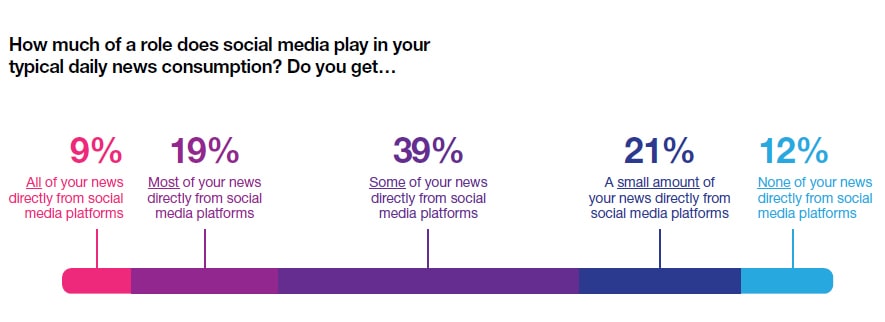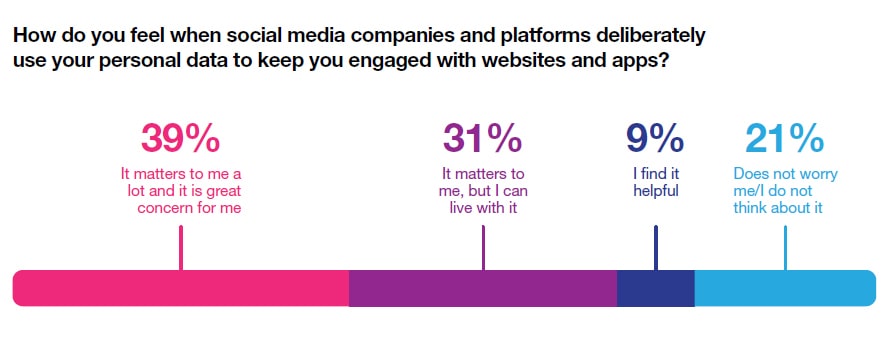While social media plays an increasingly important role in society and is mostly seen as a force for good, most global users remain uncomfortable with the way tech companies access personal data.
The COVID-19 pandemic has put a range of digital platforms at the centre of our lives, with social media at the forefront as lockdowns and social distancing measures became our new normal.
The Blackbox Research paper, Taming the Tech Tigers: Can Global Big Tech Be Trusted With Our Future?, revealed that users’ perceptions and sentiments remain divided on several key issues, namely the way tech companies handle data privacy, social impact, and political influence..
Produced in partnership with ADNA, the white paper revealed global trust in social media is on the decline.
The use of personal data is a given – nearly three in four users (73%) expect their data to be used by social media companies to keep them engaged with websites and digital applications. However, a significant portion of users report that they do not trust companies to handle their data and protect their privacy, with numbers varying from country to country.

Blackbox Research ceo David Black said the study highlighted how Big Tech needs to pay attention to shifting global sentiment, and underlined the challenges of balancing data governance, privacy, and access in data-driven economies.
Key areas of opportunities and risks in Asia
Growing digital economies the likes of China (43%), Thailand (45%), and Indonesia (50%) are found to be the most comfortable with all types of data being collected and shared by social media companies.
Privacy boundaries prove to be more malleable across Asia’s booming economies where social platforms provide socio-economic and social mobility opportunities – unfolding key areas of opportunities and risks for CIOs in Asia.
The China factor
Chinese tech giants are gradually growing their footprint outside of the domestic market. Beyond China, Alibaba is perceived the most positively in Japan (76%), while Tencent performs best in Thailand (76%) and Malaysia (62%).
Asian technologies are increasingly embraced by the world, a developing trend that may change the way things work in the ICT landscape, and present a pivotal challenge for CIOs.
Forces of good or evil
Countries across Asia remains divided over their perception of social media as a force of good or evil. Philippines (84%), Vietnam (69%) and Malaysia (69%) believe that social media is a force for good, whereas Hong Kong (43%) believe social media to be a force of evil.
Nuances across Asia in how they perceive social media can reveal potential implications and strategies for the technology investment undertaken by CIOs.
Black further added that regulators are no longer leaving social media firms to their self-governance model. From ‘antitrust’ conversations in the United States to Australia clamping down on digital platforms to protect local media outlets, governments globally are coming down hard on Big Tech in more ways than one.
He pointed to a conundrum in the study: users are distrustful of social media companies’ influence but at the same time rely on these platforms in their day-to-day lives.

“These dynamics will continue to evolve, as the first generation of digital natives – those who have grown sharing all sorts of personal data on digital platforms – become the leading voice of today’s global population.”
“As such, regulators will need to tread carefully and avoid over-correcting. If they do, they risk not only a backlash from devoted users but also disenfranchising those for whom social media platforms provide great social mobility opportunities,” concluded David Black.




